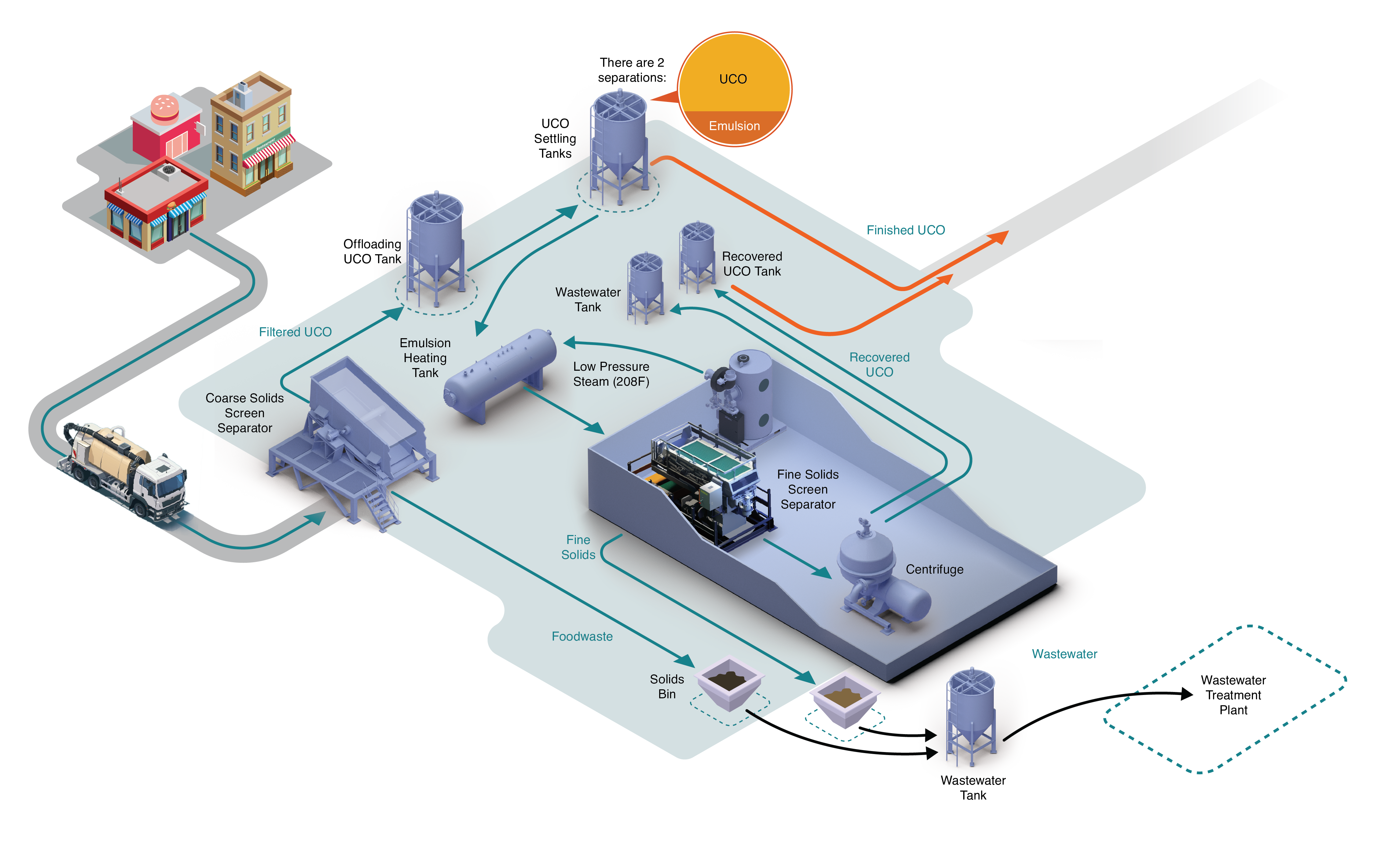There has been an increasing focus on sustainability in the foodservice industry as many businesses are trying to lessen their environmental footprint. It is important for foodservice businesses to focus on sustainable practices not only to help the natural environment but also to continue to attract customers. Consumers understand the environmental impact that restaurants can have, and they may base their choices on what certain businesses are doing to promote sustainability.
Fast food chains especially have been increasing their focus on sustainability to reduce their environmental footprint. There are several ways that fast food chains can accomplish this including using reusable containers, more energy-efficient lighting and appliances, and locally grown ingredients. They are also implementing programs to convert food waste and used cooking oil into sustainable products like renewable fuels to help lessen their carbon footprint.
Each fast-food chain is different and each franchise within a particular chain also operates a little differently as well. It is important for fast food chains to remember that there is not a single strategy to follow to improve sustainability. Each restaurant should determine its own strategy based on which sustainable practices align with its sustainability goals. In this guide, we will discuss the ways in which fast-food chains can increase their sustainability and ultimately reduce their environmental footprint.
How Fast-Food Chains Can Reduce Carbon Footprint
The energy consumption, transportation needs, and amount of waste created by fast food restaurants make the industry one of the largest contributors to global carbon emissions. Fast-food restaurants can reduce their carbon footprint in several ways, including:
- Investing in renewable energy, such as wind energy and solar power
- Switching their packaging to reusable containers instead of disposable packaging
- Implementing recycling programs
- Sourcing locally grown ingredients to reduce reliance on nonrenewable resources and fuel needed for transportation.
- Investing in energy-efficient appliances and lighting
- Reducing water usage
- Composting food waste
- Working with a professional for used cooking oil (UCO) recycling
Individual restaurants may not have the capacity to implement all these sustainability practices but implementing even just a few can help reduce their carbon footprint and build trust with their customers. It is up to each fast-food restaurant to decide which of these practices makes the most sense for their sustainability goals while keeping them on track with their profitability goals.
ESG Investing Protocols
Another way fast food chains can improve sustainability is to invest in ESG protocols. ESG stands for environmental, social, and governance protocols that focus on issues that include diversity initiatives, environmental stewardship, employee safety, labor practices, community relations, welfare standards, and more. Fast-food restaurants can also join organizations dedicated to sustainability which gives them access to valuable resources that can help further their sustainability agenda.
ESG investing allows fast food restaurants to take meaningful steps towards reducing their environmental footprint while demonstrating their commitment to their customers and investors.
Environmental Protocols
Implementing certain environmental protocols can help fast food chains further commit to reducing their environmental footprint.
- Zero waste initiatives: Fast food restaurants should consider zero waste initiatives that drastically cut down on the amount of waste they produce, including switching to recyclable or reusable containers instead of disposable containers.
- Reducing water consumption: Restaurants can reduce water consumption by implementing new policies and procedures around the use of water.
- Invest in renewable energy: Reducing dependence on nonrenewable resources can effectively reduce the environmental footprint of fast-food restaurants. Locally sourced ingredients are renewable resources that require less transportation which cuts down on carbon emissions. Using renewable energy sources like solar power also improves sustainability.
Social Protocols
Fast-food restaurants also have a responsibility to focus on social protocols that promote sustainability. One area of focus should be the safety and well-being of their employees. Restaurants can consider the wages, working conditions, and health benefits and invest in their employees through professional development programs. They should also look for opportunities to engage with the local community. Community engagement and prioritizing the well-being of employees can help build trust among consumers.
Another aspect of social protocols fast food chains can focus on is animal welfare. Restaurants may consider switching to meat and eggs with no added hormones or antibiotics. This demonstrates a commitment to sustainable practices without compromising the quality of the food.
Governance Protocols
Fast food chains focused on sustainability must also consider governance protocols which include organizational transparency to promote accountability and responsibility. Restaurants should produce annual sustainability reports to demonstrate the progress they have made toward their goals. They should also be transparent about following human rights and labor laws and ensuring that they are valuing the rights of their workers by offering benefits and fair wages.
Being transparent about their efforts to uphold sustainability standards and implement fair labor practices will help fast-food restaurants build trust with their communities and show that they are responsible corporate citizens.
How Mahoney Helps Fast Food Chains with Sustainability
One of the main goals of implementing sustainable practices is to reduce the carbon footprint. With fast food restaurants being one of the main producers of carbon emissions, it is important for them to take steps to reduce their emissions by cutting down on food waste and cooking oil waste. Working with a professional like Mahoney Environmental can help ensure that used cooking oil from fast food restaurants is collected and recycled.
At Mahoney Environmental, we work with all types of foodservice establishments, including fast food restaurants, to collect and recycle used cooking oil. Our professionals will arrive at your location when your storage tank reaches a certain level, and we will load the UCO directly into our trucks. We will then transport the UCO to a facility where it will be recycled and used to produce sustainable products.
When you work with Mahoney Environmental for used cooking oil recycling, you can expect the following:
- Service: We provide superior service with regular pickups to collect your used cooking oil. We will load the UCO from your tank to our trucks and provide you with an accurate record of the UCO we collect. You do not have to be present when we make our pickups.
- Safety: The proper storage and regular pickup of used cooking oil creates a safer and more efficient working environment. We can provide fast food restaurants with cooking oil equipment to transfer and store used cooking oil and reduce the risk of spills and injuries. We also monitor the level of UCO in the storage tanks and arrive for pickups before they get full.
- Sustainability: Used cooking oil pickup promotes sustainability because it drastically reduces the amount of cooking oil that ends up in landfills and contributes to the production of sustainable materials like renewable fuels.
Working with Mahoney Environmental for used cooking oil pickup and recycling services is an important step fast food chains can take towards promoting sustainability. You can call us at (800) 892-9392 for more information. We are proud to serve food establishments across the country including Atlanta, Baltimore, Baltimore, Boston, Chicago, Cleveland, Columbus, Dallas, Denver, Houston, Indianapolis, Kansas City, Los Angeles, Miami, Nashville, New York, Orlando, Philadelphia, Phoenix, San Diego, San Antonio, Seattle, Tampa, Tucson, Washington DC and the surrounding areas.



 Call Us Now (800) 892-9392
Call Us Now (800) 892-9392